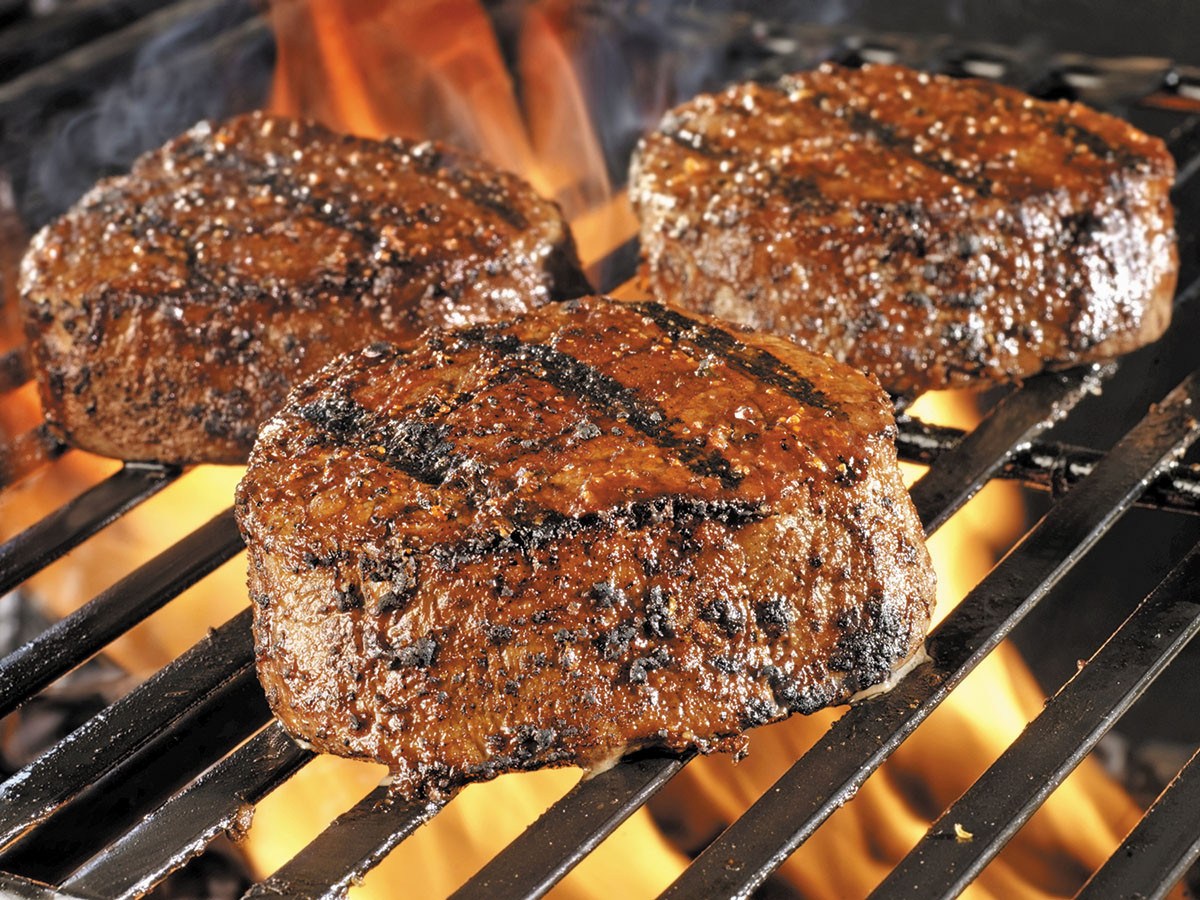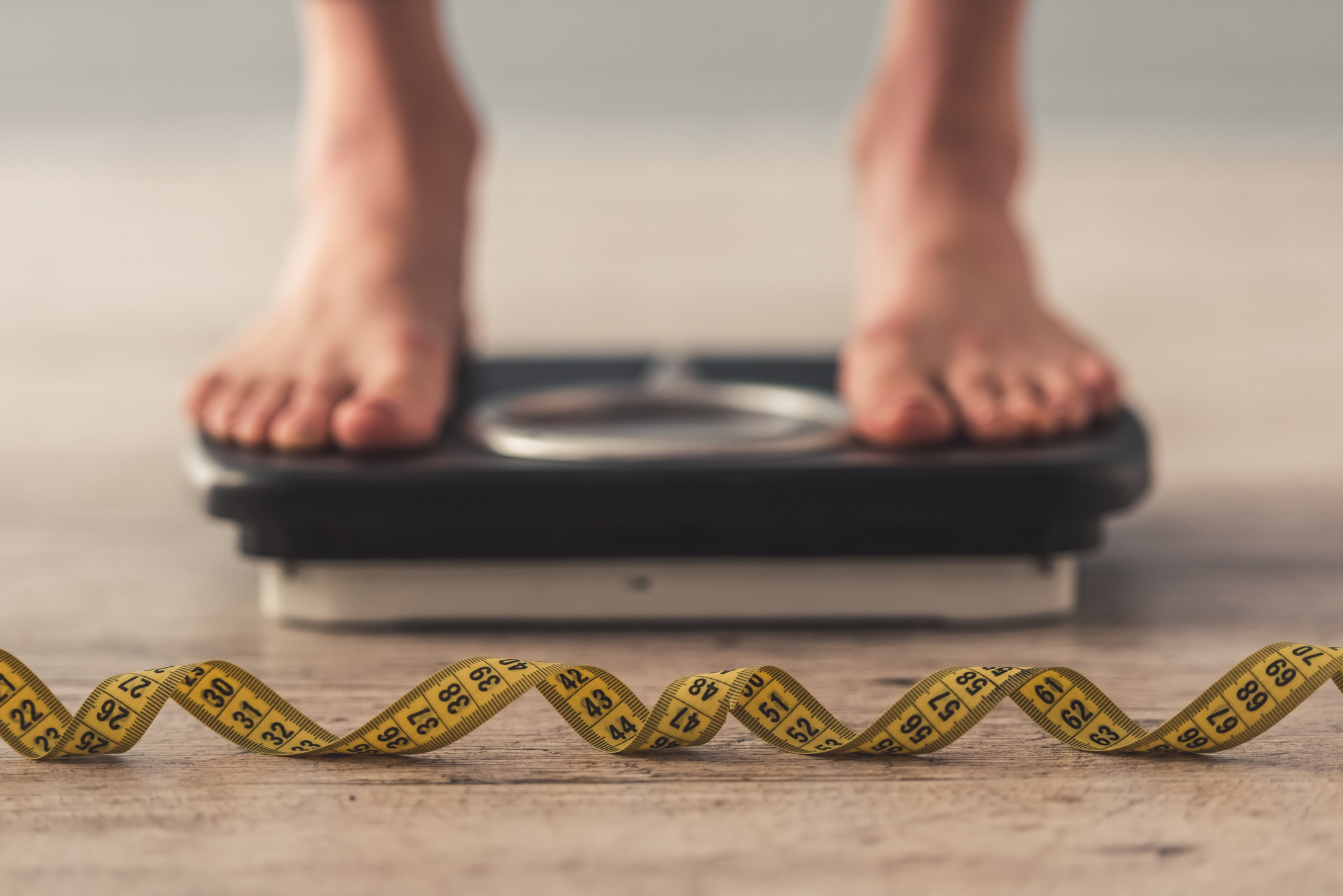
New thinking about plaque in arteries that feed the brain

Want to prevent shifting teeth? Maybe you need retainers

What you need to know about the new dietary guidelines

Food that’s healthier for people and planet can be cheaper, too

New evidence that polyphenol-rich foods help the heart

8 simple ways to reduce ultra-processed foods in your diet

How to curb your stress eating

How to spot Parkinson’s disease symptoms

Heart failure symptoms in women: How they’re different

GERD diet: Foods to avoid to reduce acid reflux
Nutrition Archive
Articles
Summer grilling may raise blood pressure risk
Research we're watching
Image: © Lauri Patterson/Getty Images
Many people switch from stove to grill in the warmer months. But a new study links regular consumption of grilled meat to an elevated risk of high blood pressure. A study presented at the American Heart Association's 2018 Epidemiology and Prevention — Lifestyle and Cardiometabolic Health Scientific Sessions looked at more than 100,000 people in three different studies who ate at least two servings of beef, poultry, or fish each week.
They found that those who grilled their meat or broiled or roasted it at high temperatures more than 15 times each month had a 17% higher risk of high blood pressure than people who grilled, roasted, or broiled less than four times a month.
Are weight-loss drugs worth trying?
Image: Bigstock
Newer medications, which may be safer than earlier drugs, have expanded the options for treating obesity.
Obesity is now considered more than a risk factor for other conditions; it's a disease itself. It has been the subject of intense scientific and medical research to develop effective treatments. But the quest has been elusive.
Ways to dig out of a dietary rut
Trying new foods, cooking in batches, and inviting friends to dinner give mealtime some zing.
Image: © OksanaKiian/Getty Images
You may be bored if you're eating the same foods all the time. Even worse, you may be missing out on important nutrients from foods that aren't part of your regular diet. And if that's the case, you're not alone. "I see it a lot with older adults. Their diet isn't great. They get into a rut and cook simple meals, or they rely on prepared food," says dietitian Teresa Fung, adjunct professor in the nutrition department at the Harvard T.H. Chan School of Public Health.
Why the rut?
There are many reasons why people get into a menu rut or stop eating healthy, nutritious foods in older age. It may be that you're
Eating highly processed foods may raise cancer risk
News briefs
Prepackaged, processed foods are typically high in fat, salt, and sugar. If that's not enough to make you put down a cookie or resist a frozen dinner, consider an observational study published online Feb. 14, 2018, by The BMJ. It analyzed dietary questionnaire answers of 105,000 middle-aged men and women in France for five years. Foods were grouped according to degree of processing — that is, the amount of change the ingredients go through as food makers improve flavor, coloring, and shelf life. For example, dehydrated soups, baked goods, sugary cereals, processed meats, biscuits, and sauces were considered ultra-processed foods. Less processed foods included canned vegetables, cheeses, and freshly made unpackaged bread. Every 10% increase in consumption of ultra-processed foods was associated with a 12% higher risk for cancer in general and an 11% increased risk for breast cancer. No significant link was found to prostate or colorectal cancer. The study doesn't prove that ultra-processed foods cause cancer, but researchers say the cumulative effects of food additives remain largely unknown.
Losing weight helps your partner slim down, too
In the journals
Image: © FlyMint Agency/Getty Images
People who make an effort to lose weight can help their partner do the same, according to a study published online Feb. 1, 2018, by Obesity.
The study tracked the weight-loss progress of 130 couples over six months. The couples were divided into two groups. In one group, one member of the couple was enrolled in a Weight Watchers program that provided in-person counseling and online tools to assist with weight loss. In the second group, one member of the couple received a four-page handout with information on ways to lose weight, like healthy eating, exercise, and weight-control strategies.
5 foods to eat (almost) every day
Eating these selections often will pack more nutrients into your diet for better overall health.
Image: © IGphotography/Getty Images
You don't need a whole-life overhaul to improve your health. Sometimes it's small changes that make the biggest difference. This is definitely the case when it comes to your diet. Eating better shouldn't require you to purge your refrigerator and subsist on kale shakes. Simply adding a few nutrient-rich foods to your regular rotation can give your body a boost without making you miserable in the process.
We asked Teresa Fung, adjunct professor in the Department of Nutrition at the Harvard T.H. Chan School of Public Health, what foods you should try to squeeze in every day — or at least every week — for better health.
Ultra-processed snacks and meals may raise cancer risk
Research we're watching
Image: © xfotostudio/Getty Images
If your food is more likely to come out of a bag or a box than from a tree or the ground, you may be putting yourself at higher risk for cancer. A study published online Feb. 14, 2018, by The BMJ found that people who eat more ultra-processed foods have a higher overall risk of cancer than those who don't. In fact, when the proportion of ultra-processed foods in a person's diet increased by 10%, the risk of cancers increased by more than 10%.
The researchers came to their conclusions after reviewing data from more than 100,000 people, on average 42 years old, based on their usual consumption of 3,300 different foods. The foods were classified according to their level of processing. Ultra-processed foods included things like
Vegetable of the month: Red cabbage
Image: © pjohnson1/Getty Images
Slivers of this vibrantly colored vegetable, also known as purple cabbage, are sometimes added to cabbage salads and coleslaw. But why not add red cabbage to any salad — or even make it the star ingredient?
Red cabbage contains substances called anthocyanins, which are responsible for the red-orange to blue-violet colors found in many fruits and vegetables. Population-based studies have linked a higher intake of anthocyanins and other so-called phytochemicals to a lower risk of cardiovascular disease.

New thinking about plaque in arteries that feed the brain

Want to prevent shifting teeth? Maybe you need retainers

What you need to know about the new dietary guidelines

Food that’s healthier for people and planet can be cheaper, too

New evidence that polyphenol-rich foods help the heart

8 simple ways to reduce ultra-processed foods in your diet

How to curb your stress eating

How to spot Parkinson’s disease symptoms

Heart failure symptoms in women: How they’re different

GERD diet: Foods to avoid to reduce acid reflux
Free Healthbeat Signup
Get the latest in health news delivered to your inbox!
Sign Up











